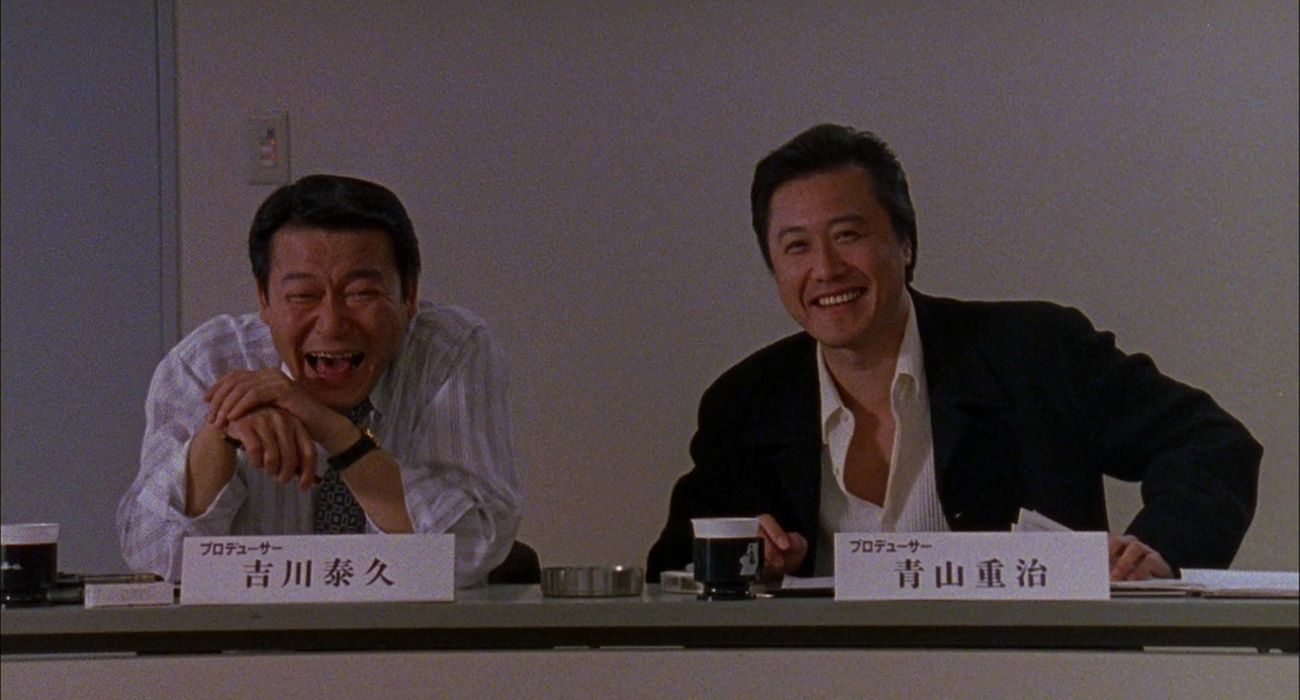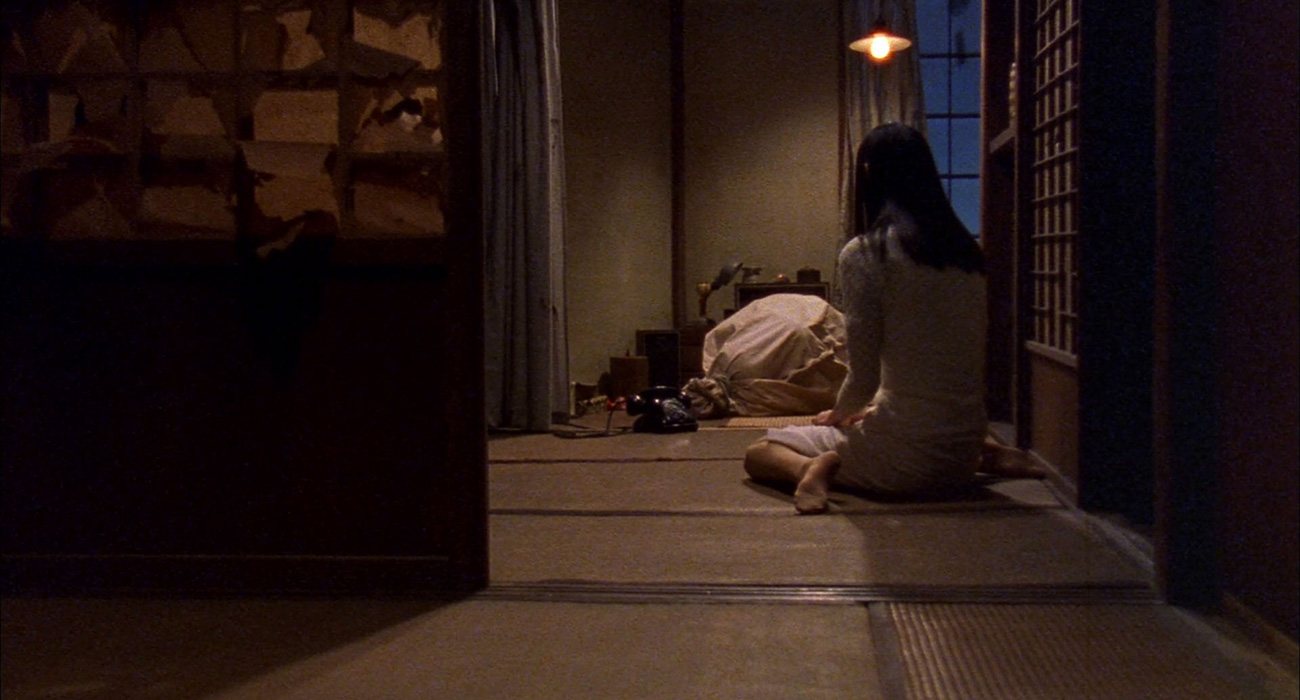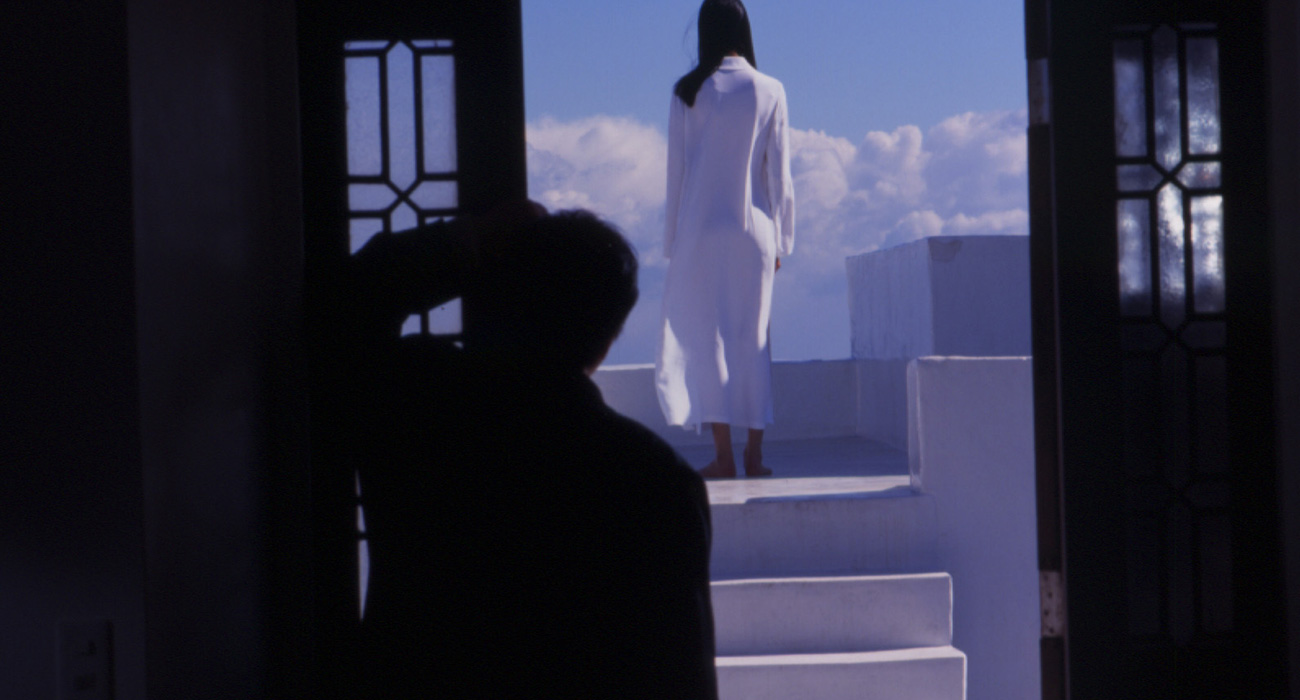Before the turn of the century, Takashi Miike became a household horror icon when he unveiled Audition, a film that for some viewers was so powerful in its imagery that it left stomachs churning out of fear and inspired several walkouts. Yes, the infamous torture scene that’s been pored over by viewers ever since is indeed wicked and memorable – so much so that you could even say it helped inspire a niche in horror films: the torture porn genre. Miike’s cameo in Eli Roth’s Hostel gives a bit of credibility to this theory.
But the legacy of Audition shouldn’t only be defined by this singular scene. While the film is certainly packed with Miike’s signature eye for nightmarish visuals and unforgettable imagery, Audition is still powerful in other ways. Yet in trying to write this review — which truthfully has taken me a few months now as I’ve had to stop and start it — I have slaved over the words I’ve wanted to write about this film as I’ve honestly found it quite hard to communicate my adoration and explain why it’s so damn good.
I wish I could write something a lot more insightful as I do recognise some of its observations on women and even dating dynamics but concede that it’s been difficult to do so in proper fashion. But I’ll try my best because a film like this — which has more in common with Sion Sono’s Guilty of Romance (or perhaps even more appropriately David Fincher’s, Gone Girl) than any other horror film that it may have already been compared to in the years that followed its initial theatrical run — deserves to be spotlighted at any given chance.

Following the passing away of a television executive’s wife right at the beginning of the film, Audition flash forwards several years into the present timeline where we catch up with the widower happily fishing outdoors with his son. Riffing on the old phrase of “there’s plenty of fish in the sea”, his son suggests that he start dating other women.
Heeding his son’s words, and taking advice from a fellow producer, the executive concocts a scheme to audition women for a bogus role in a bogus television show; all in an attempt to meet someone he can potentially call his wife. After going through dozens upon dozens of photos and applications from women for a non-existent role, he eventually stumbles across one woman who captivates his imagination. He knows nothing about her other than the information that’s available on her application and the photo she’s attached. Smitten, he feels like he’s already made his decision.

In some ways, this process of scanning people and accepting them based on the information they decide to put out to the world isn’t all too different to how dating dynamics (and just meeting people in general) work nowadays where information is specially curated on social media and other dating apps and services. Miike demonstrates all this in a manner that appears slightly unsettling, largely because it’s a task that his character feels is quite mundane or ordinary (it’s his job to do so, true, but it’s nevertheless a little discomforting!). When he finally does meet the woman he’s been pining over, she’s a bit of an enigma. Though coming across as timid and a bit strange, he’s curious and wants to know more about her.
The two continue to see each other and it is at this point in the film where Audition decides to initiate a bold and daring bait-and-switch, going from something that feels almost like a bizarre romantic comedy-drama to the horror that it has since become famous for. The switch is played masterfully and though there are flashes of horror even within the first half of the film — suggesting a tale that might not end the way viewers would expect — this second half is where the true vision of the film truly materialises.

For it is here, where the story and direction of the film no longer belongs to our lovelorn television producer but to that of Asami Yamazaki (played by a fantastic Eihi Shiina). The less said about this character, the better, but just know that it is with her that Audition becomes scarily great. It is with her that Miike is able to use the film to transcend its basis in horror and tell something of a feminist story that at once feels universal but also inherently Japanese. And to that end, it can be argued that the real protagonist of the film is Asami who ends up taking the producer, and inevitably the audience, on a nightmarish and hallucinogenic trip into her world; forcibly making the film about her all the way through.
There’s so much more that I would like to unpack from Audition but as much as I would like to dig deeper, I don’t think I can quite put into words some of the other finer points of the film that I’m sure a better and more knowledged writer would be better at achieving. Maybe I’m thinking a little too much about this film and maybe it’s not as much of a social commentary as I think it is (but it’s still fun to read it as such). What I can say with certainty about Miike’s film however is that it is indeed one of the most unforgettable horror film experiences that I have had in a long time (embarrassingly, I don’t watch a lot of horror!). Audition lives up to its reputation and rocked me with its overwhelming atmospherics. Unshakable is Miike’s film and it’s one that I think is better experienced and discussed rather than simply reviewed, ironically. There’s a lot to appreciate and a lot to fawn over in what is undoubtedly one of the greatest Japanese films ever made.
